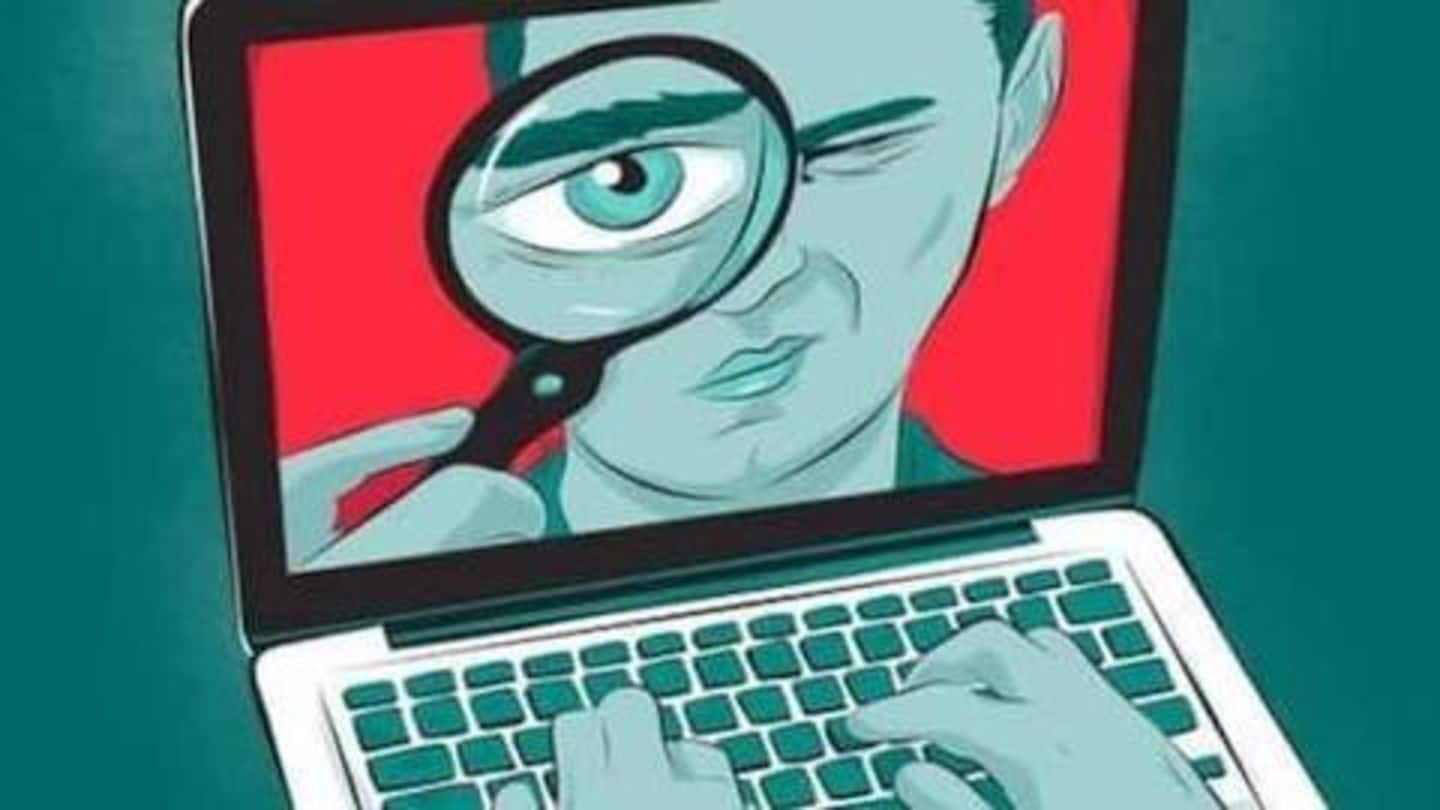
#SnoopingRow: RTIs reveal UPA intercepted 9,000 calls, 500 emails monthly
What's the story
Just days back, a political row had erupted over a government order that gave sweeping powers of surveillance to 10 Central agencies.
While the order saw the Opposition level charges of 'snooping' against the government, the government had hit back, saying that the roots of the order lay in an older UPA policy.
Now, older RTI responses seem to have substantiated the government's claims.
Quote
MHA's response to allegations of snooping
"Similar provisions and procedures already exist in The Telegraph Act along with identical safeguards. The present notification is analogous to the authorization issued under The Telegraph Act. The entire process is also subject to a robust review mechanism," the Home Ministry had said, defending the order.
RTIs
Details of the RTI responses
Two RTIs, one dated 2011 and the other 2013, has revealed the extent of 'snooping' that went on during the UPA regime.
In the 2011 RTI response, reported by Republic World, it has been found that the Congress-led UPA government itself allowed the interception of 7,500-9,000 calls per month.
The 2013 RTI response reinforced the 2011 findings, adding that 300-500 emails were also intercepted monthly.
Twitter Post
Union minister Rajyavardhan Rathor calls out Congress' hypocrisy
As many as 9000 phones 500 emails were tapped monthly in UPA2, a 2013 RTI reveals
— Rajyavardhan Rathore (@Ra_THORe) December 22, 2018
That's 300 phones 20 emails tapped- every. single. day.
With its history of emergency post office amendment bill, Congress should NOT be hypocritical about steps to ensure national security https://t.co/mhvDaojTTX
Response
Finance Minister Arun Jaitley had come down heavily on Congress
Earlier, responding to the Opposition, especially the Congress' claims that the government had approved a 'general snooping order', Finance Minister Arun Jaitley had come down heavily on the grand old party.
In a blog post titled 'The Congress Speaks Without Thinking', Jaitley had explained that the Congress was "ill-informed" - surveillance for security existed way back, and mass surveillance came up under the UPA.
Surveillance
Origins of mass surveillance in India dates back to 2009
Indeed, interception of private communication during emergency and/or for public safety stems back to British-era legislation.
However, the proposal to set up a mass surveillance system, dubbed the Central Monitoring System (CMS) was first made by the Congress-led UPA government in 2009, Firstpost reports.
The plan to build a CMS was approved in 2011, and the CMS roll out reportedly started in 2013.
Information
The CMS sought to bypass courts, Parliament, in surveillance powers
The proposed CMS was essentially a wide-ranging mass surveillance program that sought to give security agencies and income tax officials the power to directly tap into phone calls, messages, and emails without the oversight of courts or the Parliament.
Subsequent developments
Subsequent developments in CMS deployment
Then, in January 2014, it was reported that a circular by the Department of Telecommunications (DoT) authorized nine Central agencies, state director-generals of police (DGPs), and the Delhi Police Commissioner to put in requests for interception of private communication.
Almost two years later, in December 2015, IT minister Ravi Shankar Prasad told the Rajya Sabha that the CMS would by launched by end-March 2016.
Finalization
CMS trials finally took place in 2017
In May 2016, Prasad added that the CMS would be launched in a phased manner.
A year passed, and it was in August 2017 that telecom minister Manoj Sinha said that the technology development and pilot trials for the CMS had been completed.
Sinha also added that Regional Monitoring Centers (RMCs), and Central Monitoring Center (CMC) had been commissioned.
Last order
The recent MHA order codifies previous developments
Finally, on December 20, 2018, the Home Ministry listed the 10 Central agencies that would have the power to carry out surveillance in certain specified situations, once approved by a competent authority i.e. the Union Home Secretary.
The ministry added that under the order, no new powers had been added, but earlier directions had been codified.
To conclude
Surveillance for security vs privacy: Why the debate is important
All this goes on to prove that mass surveillance in the name of national security is certainly not new, and has been going on for a while.
Yet, considering that there's always potential for misusing this power (remember Edward Snowden's revelations?), it's important to keep the 'surveillance for security' vs privacy debate alive in the public sphere so as to create checks and balances to overarching surveillance powers that could, later, lead to the creation of an Orwellian surveillance state.